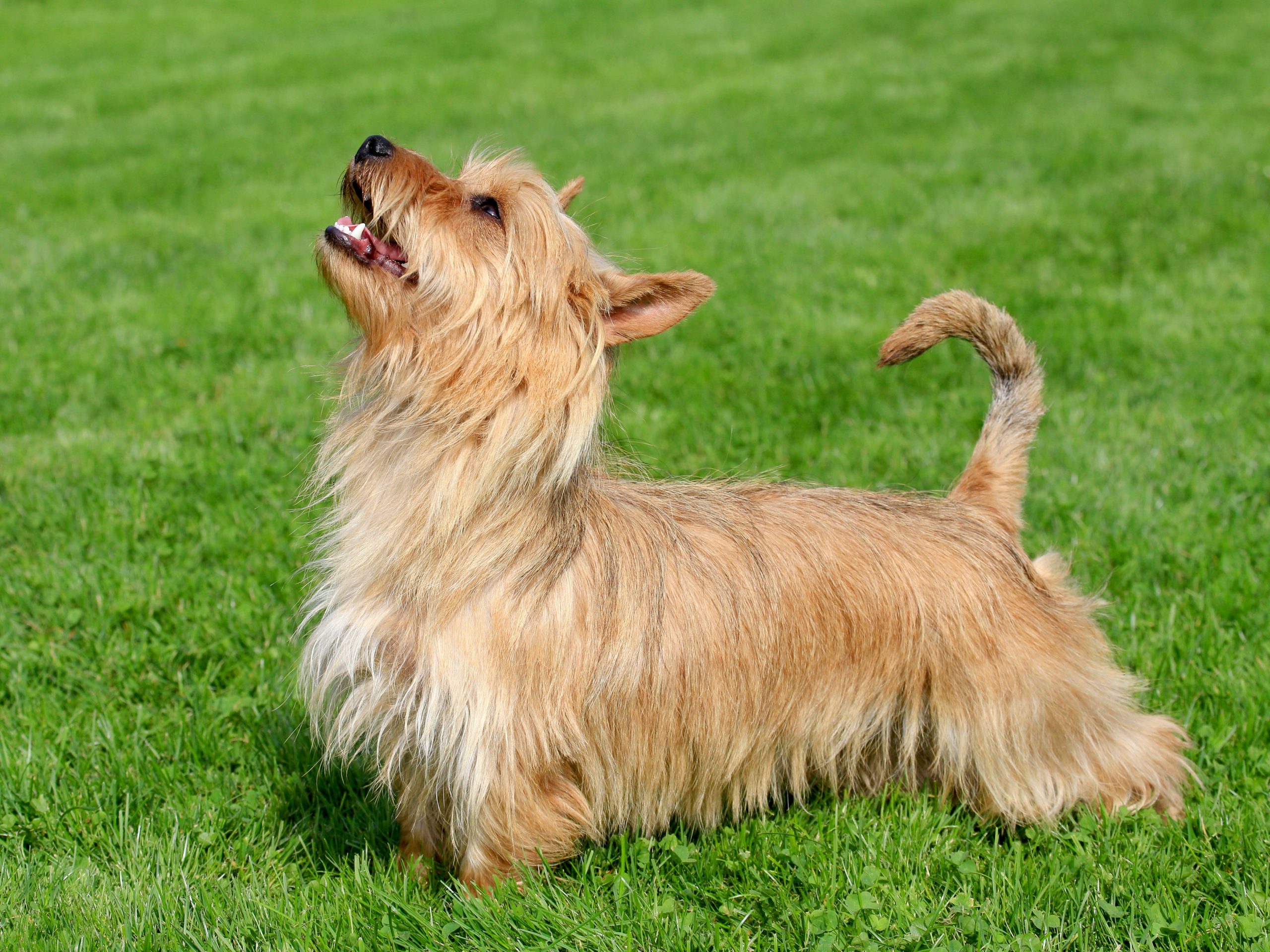Silky Terrier
No products found which match your selection.
Shelter Dog Meal Donation Count:
No products found which match your selection.
The Silky Terrier is a vibrant and affectionate breed, perfect for those seeking a small, energetic companion. Their intelligence and alertness make them excellent watchdogs, while their loving nature makes them great family pets. Regular grooming is required to keep their coat in top condition, and they thrive on human interaction and mental stimulation. Suitable for apartment living, the Silky Terrier is a loyal companion that brings joy and activity to any home.
The Silky Terrier is an excellent companion dog, combining the alertness of terriers with the elegance of toy breeds. Their adaptable nature makes them well-suited to various living environments, from apartments to larger homes.

Originating from a cross between the Yorkshire Terrier and the Australian Terrier, the Silky Terrier was bred to be a more refined companion dog while retaining some of the working dog traits. It was officially recognized as a distinct breed in Australia in the early 20th century.




Generally healthy but prone to certain conditions like patellar luxation and tracheal collapse. Regular veterinary check-ups are essential for early detection and management of health issues.
The silky coat requires regular grooming, including daily brushing to prevent matting. Regular bathing, nail trimming, and dental care are also important.
Despite their small size, Silkies are energetic and require daily exercise. Activities should include walks and playtime to keep them mentally and physically stimulated.
Intelligent but can be stubborn; consistent, positive reinforcement methods work best. Early socialization is crucial to prevent the development of small dog syndrome.
A balanced diet tailored to their size, age, and activity level is important. Avoid overfeeding, as they can be prone to obesity.
Caring for a Silky Terrier requires a commitment to their physical and emotional well-being. With the right care, they make lively, loving, and entertaining companions.
Silky Terriers, like all dog breeds, have certain health issues that they are more prone to. Here's an overview of common health concerns in Silky Terriers and the recommended tests to identify or manage these issues:
Regular veterinary check-ups are crucial for early detection and management of these conditions. A healthy diet, regular exercise, and good dental care can also play a significant role in preventing or managing some of these health issues. Always consult with your veterinarian for the best health strategies for your Silky Terrier.
The iHeartDogs Free Rx Discount Card Program is a pet prescription discount card that can help you save money on your furry friend’s medications. The card is free to sign up for, and you can use it at participating pharmacies nationwide. To use the free program, simply show the card to your pharmacist when you pick up your pet’s prescription. The pharmacist will then scan the card, and you will receive a discount on the price of the medication.LEARN MORE
The annual cost of caring for a Silky Terrier, like any pet, can vary based on several factors including your location, the dog’s health, and the level of care you choose to provide. Here’s a breakdown of typical expenses:
Total Estimated Annual Cost:
$2270 - $8020
It's important to note that these figures are estimates and can vary. Also, the first year of owning a dog can be more expensive due to one-time costs like spaying/neutering, initial vaccinations, and training. Regular budgeting for your dog's needs and an emergency fund for unforeseen costs are essential for responsible pet ownership.